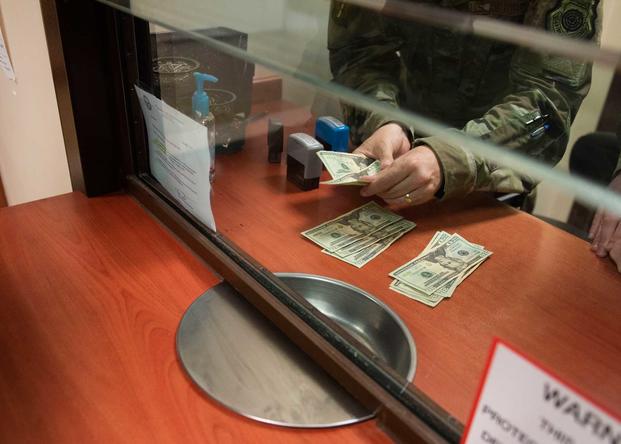While most military members will likely see their base pay increase in January, the final number on their take home pay will temporarily drop in the new year thanks to an executive order signed by President Donald Trump in August.
That order, part of a payroll tax deferment designed to give workers an immediate bump in take home pay in 2020, requires those taxes to be repaid in the new year. That means while a 3% pay raise for military members is on track to pass Congress and the White House for 2021 the executive order will temporarily lower the wages of most Americans by 6.2% for the first four months of next year.
"I am directing the Secretary of the Treasury to use his authority to defer certain payroll tax obligations with respect to the American workers most in need,” Trump said in August. “This modest, targeted action will put money directly in the pockets of American workers and generate additional incentives for work and employment, right when the money is needed most."
The deferred tax will be automatically deducted from troops’ paychecks January through April of 2021.
During that time period Americans will see their Social Security, also known as Old Age, Survivors, and Disability Insurance (OASDI) payroll tax increase to around 12.4% instead of the usual 6.2% withholding rate. That extra withholding will be used to make up the shortfall in tax revenue created by the deferment of tax collections from the executive order.
For example, an E-5 with four years of service will see approximately $50 less per payday and an O-3 with the same amount of service will see about a $100 decrease each payday for the first four months of 2021 due to the Social Security tax deferral.
While many civilian companies refrained from participating in the Social Security tax collection deferral, most federal employees, including military members, had no choice and no option to opt-out and will therefore feel the pinch in their wallets before very long. Only those whose monthly military basic pay was more than $8,666.66 were not eligible for the deferral and, therefore, not be affected by the payback requirement.
Get the Latest Financial Tips
Whether you're trying to balance your budget, build up your credit, select a good life insurance program or are gearing up for a home purchase, Military.com has you covered. Subscribe to Military.com and get the latest military benefit updates and tips delivered straight to your inbox.












